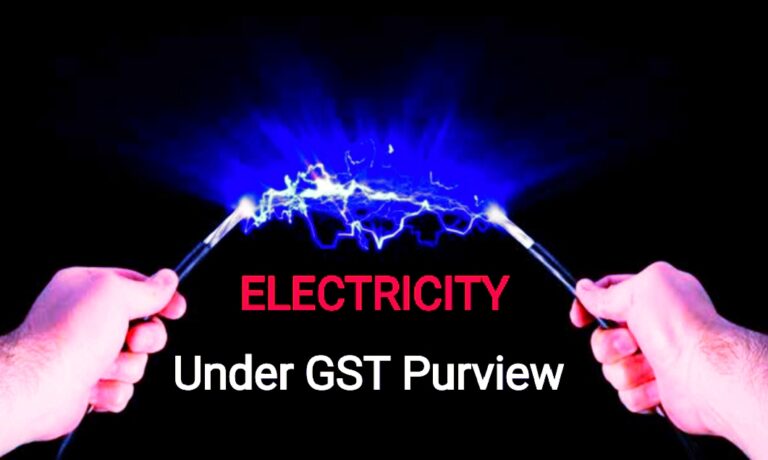Government Explores on Inclusion of Electricity in GST to Enhance the Tax Base While Benefiting both the Industry and Consumers
In a significant development, the government is actively exploring the inclusion of electricity in GST framework. This move aims to enhance competitiveness in the sector and provide manufacturers with the opportunity to offset tax liabilities by utilizing GST credits from their electricity expenses.
As of now, power utilities include GST in electricity prices, leading to an embedded tax and a cascading effect on the manufacturing sector. Recognizing the potential impact on industry revenue, state revenues, and household electricity expenses, the government is collaborating to investigate the feasibility of incorporating electricity in GST while maintaining lower state electricity duties.
Industry sources suggest that the inclusion of electricity in GST framework is anticipated to benefit coal-based power plants and hydro projects, serving as a potential pilot for extending GST to cover petrol, diesel, crude oil, natural gas, and jet fuel. Audit and consulting firms have been engaged by the government to analyse this transition.
Industry feedback indicates that GST could potentially reduce electricity costs for businesses through the ability to claim input tax credits. This move could lead to reduced levy expenses, offering industries a more effective tax structure. By setting an appropriate GST rate on electricity and readjusting state electricity duties to a lower level, the overall impact could be revenue neutral for the states. This strategic step not only broadens the GST base but also enhances its efficiency.
Recognizing the diversity in state duty rates, the government aims to assess the broader landscape to understand potential impacts on different states. The goal is to ensure a comprehensive understanding of the implications, taking into account the political sensitivity surrounding the domestic sector.
In conclusion, the potential inclusion of electricity in the GST framework signifies a significant step toward a more efficient tax structure, benefitting both the industry and consumers. The move aligns with broader efforts to enhance competitiveness, promote cleaner energy initiatives, and create a more streamlined taxation system. Stay tuned for further developments as the government continues to explore this transformative change in the taxation landscape.
To Read About the Rules for Suspension of GST Registration CLICK HERE
READ MORE
Lok Sabha Passes GST Bill to Enhance Functionality of GST Appellate Tribunals
